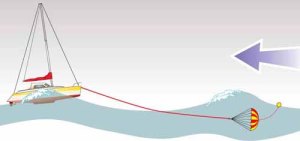In past posts I have talked about some of the key elements of succeeding when faced with a major life change: start with what’s in your heart; whether or not you initiated the change, take charge of how you respond to it; know your anchors, and your relationship to them; focus on what is important, not what is urgent; maintain your equanimity.
Today I want to address another key to success: Discipline 2.0.
Working with my clients, I find that some have very little discipline when it comes to actually taking action. Often–though not always–these are the more creative types. They are great at generating ideas, conceiving of new things, envisioning exciting and different futures. However, they never quite get started on the change journey. They come to me with some sense of the change they want to make, though they may be struggling to articulate it. They may know some of the steps they have to take, though they have done little to prepare for–or actually take–them.
This situation surfaces one of the two aspects of discipline I want to address today. It is the part of discipline that we tend to think of most often…He (or she) just doesn’t have the discipline to do what needs to get done.
The second aspect of discipline that I want to discuss is no less common, but it is much less often recognized. It is the discipline of honoring our boundaries, maintaining a focus on ensuring that we keep a balance in our lives.
I see this lack of discipline in many ways. I have one client who for years thought she had to be available to her employer 24/7. Another came to me complaining about the lack of support provided by loved ones who were, in turn, complaining about the fact that he worked day and night, seven days a week. There are those who take pride in “burning the midnight oil,” or in having “not taken a vacation in years.”
If your change is a significant one, neither of these approaches will lead to a successful result. In the first instance, you will find yourself in a constant launch, re-launch, re-launch cycle. In the second, you will end up losing your passion, then disliking, then perhaps even hating the very intent that drove you to initiate the change in the first place.
In both circumstances, the best approach is to find and work with an “accountability buddy.” In my experience, this role is best filled by someone who is far enough removed to be objective, and someone whom you trust to be direct and honest with you. You want someone who can be supportive of you; who can guide you through the planning process so that you define real action steps if that is what is needed; a person who can work with you to clarify the boundaries if your challenge is in honoring them; someone who can help you set realistic goals (whether around moving forward or honoring boundaries); and someone who will–on an agreed-upon cycle–check back in and hold you accountable.
When faced with any important change in your life, Discipline 2.0 is vital: discipline to take the steps necessary to succeed, and discipline to ensure that you maintain the equanimity required to keep you from burning out over the long haul.
What is your discipline challenge? What are you doing to address it? Share your experiences and recommendations here.




